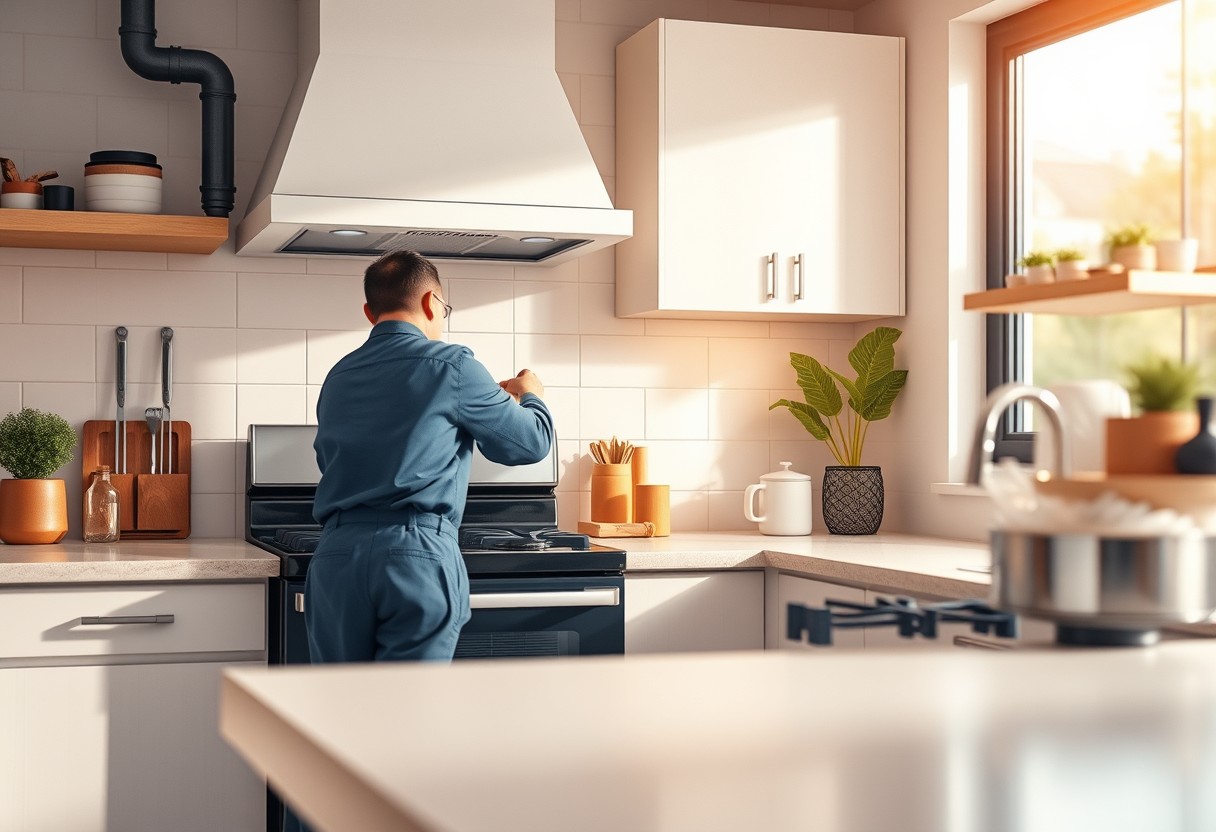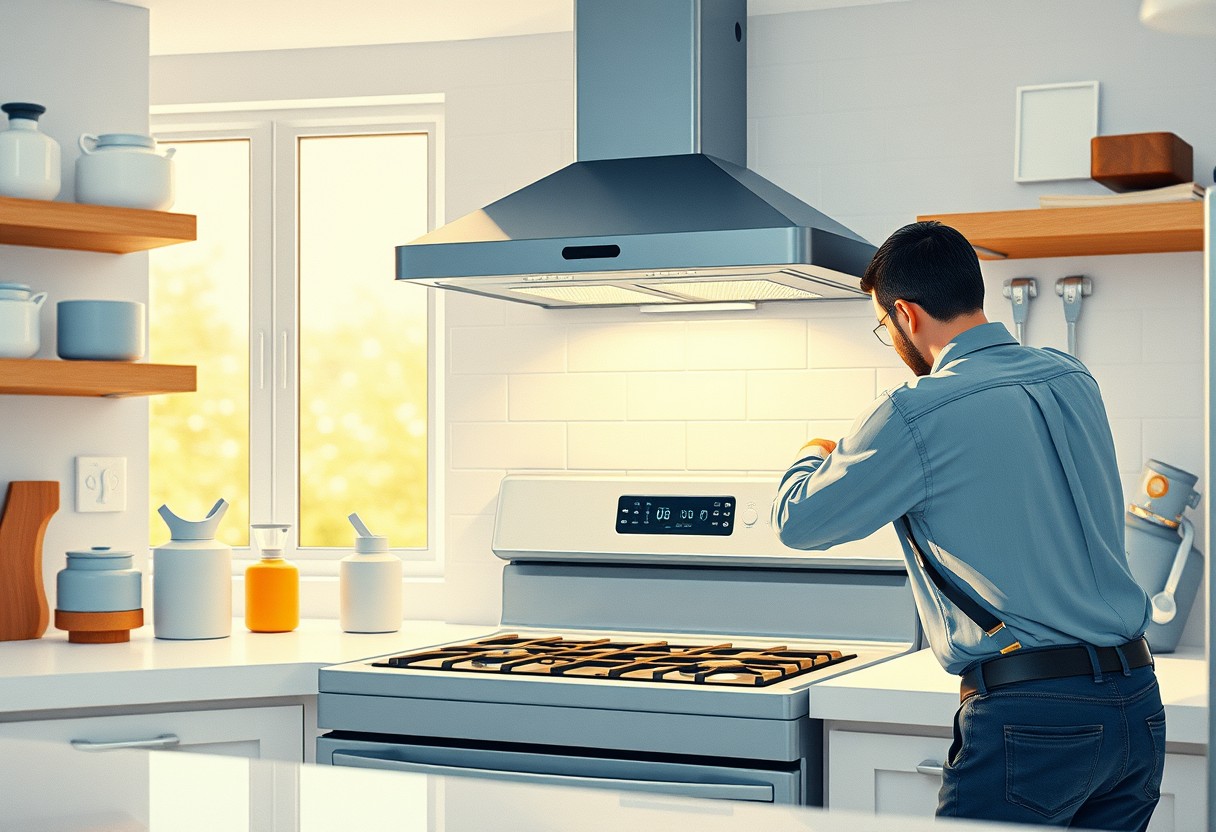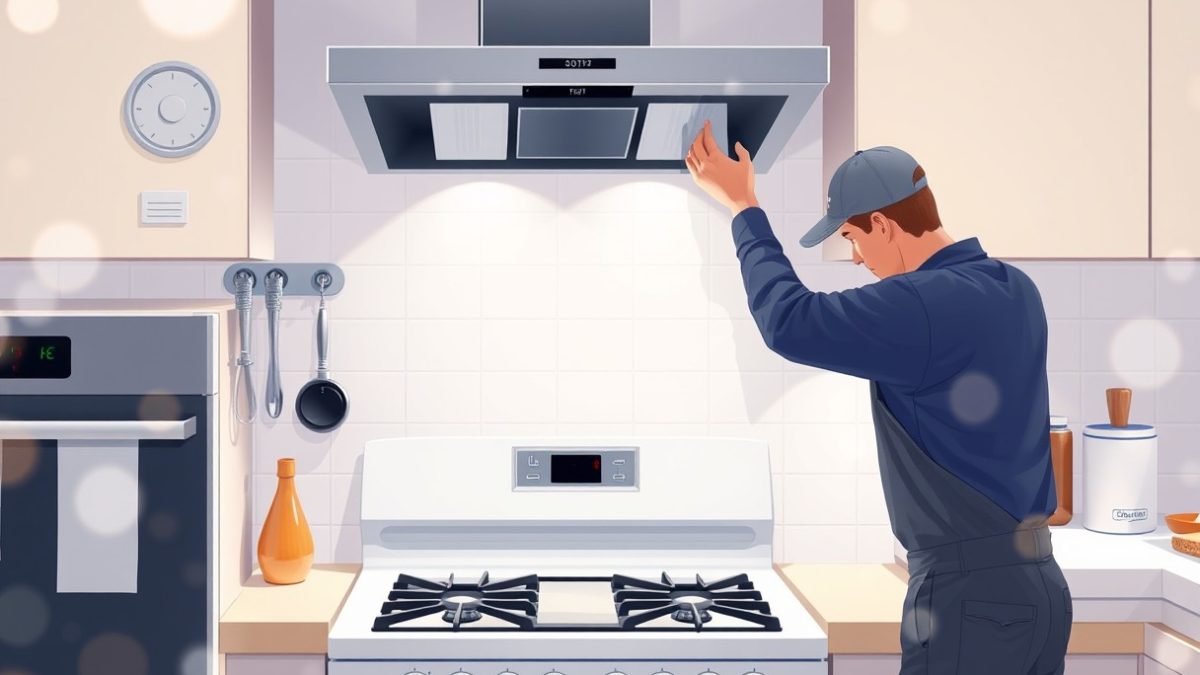
What Are The Secrets Behind Seamless Electrical Appliance Installations?
September 9, 2024
How Do Gas And Electrical Appliance Installations Compare In Complexity?
September 11, 2024Safety is paramount when it comes to the use of gas appliances in your home. Understanding how proper gas appliance installations can not only enhance your home’s efficiency but also ensure optimal safety is crucial. From reducing energy costs to minimizing the risk of gas leaks, the right installations can significantly benefit you and your family. In this blog post, you will discover the key aspects of how these installations provide greater reliability and improve safety measures, making your living environment more secure and efficient.
Key Takeaways:
- Energy Efficiency: Gas appliances are designed to use fuel more efficiently, leading to reduced energy consumption and lower utility bills.
- Safety Standards: Professional installation ensures adherence to safety regulations, minimizing risks such as gas leaks and fire hazards.
- Consistent Performance: Quality gas appliance installations provide reliable heating and cooking solutions, enhancing overall home comfort.

Understanding Gas Appliances
For homeowners looking to enhance their household efficiency, understanding various aspects of gas appliances is crucial. Not only do these devices play a significant role in daily tasks, but they also contribute to improved energy management and safety within your home. By familiarizing yourself with their types, functional mechanisms, and energy ratings, you’ll be better equipped to make informed decisions regarding gas appliance installations in your space.
Types of Gas Appliances
On your journey to comprehend gas appliances, it’s important to recognize the different types available. Gas appliances generally fall into three main categories, which are vital for various household functions. The following table outlines these categories along with a brief description:
| Type | Description |
| Cooking Appliances | Devices such as stoves and ovens that utilize gas for cooking food. |
| Heating Appliances | Furnaces and wall heaters designed for indoor climate control. |
| Water Heaters | Units used for heating water efficiently for domestic use. |
| Dryers | Gas-powered clothes dryers that provide efficient laundry solutions. |
| Fireplaces | Gas fireplaces that offer warmth and ambience without the mess of wood. |
- Cooking appliances for tantalizing meals.
- Heating appliances for cozy living spaces.
- Water heaters for everyday convenience.
- Dryers to speed up your laundry routine.
- Fireplaces for an inviting atmosphere.
Perceiving the functionalities and benefits of these appliances allows you to appreciate their role in your daily life and energy consumption.
Mechanism of Gas Appliance Functionality
With gas appliances, understanding their mechanism of functionality is pivotal. The operation primarily involves the combustion of natural gas or propane, which releases energy for heating or cooking. Most appliances feature safety valves, thermostats, and ignitions that automatically regulate the fuel and ensure that the appliances function efficiently. By harnessing the energy produced during combustion, gas appliances convert it into heat or energy to meet your household needs effectively.
This careful design minimizes energy waste and ensures that the appliances operate safely. Advanced designs in gas appliances also incorporate features like automatic shut-off valves, ensuring that if there’s an irregularity in function, the appliance can halt operations to prevent risk and danger.
Energy Efficiency Ratings
To ensure you are making sustainable choices, pay attention to energy efficiency ratings when selecting gas appliances. These ratings provide valuable information about the energy consumption level of an appliance, allowing you to make informed decisions that benefit both your budget and the environment. Higher-rated appliances perform better in terms of energy use, ultimately resulting in lower utility bills and reduced carbon emissions.
Additionally, energy efficiency ratings are typically indicated as a star rating, with more stars denoting higher efficiency. By choosing appliances with robust ratings, you invest in a safer, more economical future for your home while enjoying the benefits of advanced technology.
Appliances that have earned high efficiency ratings often include advanced features designed to optimize energy consumption, providing you added convenience and peace of mind.
Benefits of Gas Appliance Installations
While considering upgrades to your home, gas appliance installations come with numerous benefits that significantly enhance both efficiency and safety. The integration of gas appliances not only saves you money but also provides a reliable source of energy that can improve the overall performance of your home systems. When properly installed and maintained, these appliances can be a vital aspect of a sustainable home environment.
Cost-Effectiveness
Any home improvement decision largely revolves around cost-effectiveness. Gas appliances typically offer lower operational costs compared to their electric counterparts. When you use natural gas for heating, cooking, or water heating, you might notice that your monthly energy bills decrease substantially. This financial benefit can be particularly noticeable in colder climates, where gas heating systems can effectively warm your home at a lower cost.
Moreover, with advancements in technology, many modern gas appliances are designed to be more energy-efficient than ever before. This means that you can enjoy the conveniences of modern living without feeling guilty about high energy consumption. By making the switch to gas appliances, you are investing in your home’s efficiency, which translates into long-term savings for you.
Environmental Impact
Environmental considerations play a crucial role in your choice of home appliances. Gas appliances tend to have a lower carbon footprint compared to electric devices powered by coal or non-renewable sources. This means that using natural gas can effectively reduce your household’s overall greenhouse gas emissions, allowing you to contribute to a cleaner environment while enjoying the benefits of modern technology.
Environmental regulations are becoming more stringent, and many homeowners are looking for ways to reduce their impact on the planet. By choosing gas appliances, you are aligning your choices with a more sustainable lifestyle and supporting your local economy as natural gas is more abundant in many regions than other energy sources.
Another important aspect to consider is the fact that natural gas burns more cleanly than many traditional energy sources, resulting in fewer pollutants released into the atmosphere. This can lead to healthier indoor air quality for you and your family, as well as an overall reduction in environmental degradation.
Enhanced Performance
One of the standout benefits of gas appliance installations is the enhanced performance they offer. Gas stoves provide precise heat control, allowing you to cook more efficiently and with improved results. Whether you are sautéing vegetables or simmering sauces, the direct flame of a gas stove allows you to easily adjust the temperature to suit your needs.
Additionally, gas appliances often have quicker response times compared to their electric variants. For example, a gas oven heats up faster and maintains temperature more consistently, helping to ensure that your meals are cooked evenly. This kind of performance can be particularly valuable in a busy household where time efficiency is paramount.
For instance, if you are someone who enjoys cooking elaborate meals, the superior performance of a gas appliance can make a significant difference in your culinary experience. You will find that not only do gas appliances enhance the functionality of your kitchen, but they also provide a level of reliability that can ensure your meals are always up to standard.
Safety Considerations
Your home should be a place of comfort and security, and ensuring the safety of your gas appliances is an important part of that equation. Investing in the proper installation of gas appliances is not just about enhancing efficiency; it is also about safeguarding your family from potential hazards that may arise from incorrect setup or neglect of maintenance.
Potential Hazards
On the surface, gas appliances can seem benign, but they pose significant risks if not handled properly. One of the most alarming dangers is the possibility of gas leaks, which can lead to serious health hazards, including carbon monoxide poisoning. This colorless, odorless gas can build up in your living space, leading to symptoms from headaches to even fatality. Furthermore, improper ventilation can cause gas appliances to operate inefficiently, increasing not only your bills but also the risk of hazardous emissions accumulating in your home.
In addition to gas leaks, there’s the risk of fire hazards associated with faulty wiring or improper connections. A small leak or spark from an appliance can quickly escalate, putting your home and loved ones in danger. By prioritizing safe installation and upkeep, you can significantly reduce these risks and create a secure living environment.
Importance of Proper Installation
Considerations for the proper installation of your gas appliances go beyond just following the manual. Engaging a qualified professional ensures that your units are set up in accordance with local safety regulations and building codes. These experts understand the intricate details necessary for safely connecting your gas supply and ensuring adequate ventilation, drastically reducing the risks associated with gas appliance usage.
With the right installation, you mitigate the chances of malfunctions or hazardous situations arising from errors that otherwise might go unnoticed. This not only guarantees your safety but also optimizes the performance of your appliances, making them run more efficiently and reducing overall fuel consumption.
Regular Maintenance Practices
An often-overlooked aspect of gas appliance safety is the importance of regular maintenance practices. Periodically checking your appliances, inspecting for gas leaks, and cleaning vents are all important tasks that keep your system running smoothly and safely. By committing to a routine maintenance schedule, you not only elongate the life of your appliances but also ensure that any potential issues are caught before they escalate into serious problems.
To maintain the highest safety standards, consider scheduling professional maintenance at least once a year. This ensures that your appliances are functioning correctly and reduces the risk of dangerous leaks or malfunctions. Regular checks on gas connections, vent systems, and other crucial components will give you peace of mind and enhance your home’s overall safety profile.

Best Practices for Installation
After you have decided to enhance your home’s energy efficiency with gas appliances, it’s crucial to prioritize best practices for installation. Adhering to these practices not only guarantees optimal performance but also safeguards your home and family from potential hazards. Let’s explore the key components that contribute to a successful and safe gas appliance installation.
Hiring Qualified Professionals
Any time you are dealing with gas appliances, it is crucial to prioritize hiring qualified professionals for the installation process. These experts possess the knowledge and experience to ensure that the installation meets all safety standards and functions efficiently. Taking the time to research and verify credentials can prevent costly mistakes, as well as protect your home from dangerous situations associated with improperly installed gas appliances.
Qualified professionals also stay updated on the latest industry regulations and best practices. Engaging an experienced technician or a licensed contractor can give you peace of mind, knowing that your gas appliances are set up with precision. Moreover, they can offer insights on optimizing the efficiency of your appliances, enhancing their performance and longevity in your home.
Safety Standards and Regulations
Installation of gas appliances must comply with safety standards and regulations to minimize risks such as leaks or faulty operation. These regulations are put in place to protect both you and your property. Familiarizing yourself with local codes and standards can help ensure that your installation not only adheres to the law but also provides a secure environment for your family.
Installation practices can vary depending on your location, so it’s advisable to consult your local government or utilities provider for guidance on required permits and inspection services. Compliance with these safety standards ensures that your appliances are installed correctly and function safely, minimizing any risks of accidents or property damage.
Utilizing Quality Materials
To elevate the safety and efficiency of your gas appliance installations, utilizing quality materials is crucial. Investing in high-grade pipes, fittings, and connectors ensures that every component of your appliance functions as intended. While it may be tempting to cut costs with cheaper alternatives, doing so can lead to complications that compromise safety, such as leaks or premature wear and tear.
Moreover, using reliable materials often translates into improved efficiency, as they are designed to perform optimally under various conditions. The longevity and durability of quality components can save you money in the long run by reducing the need for maintenance and replacement.
Practices that emphasize the use of superior materials and verified installation techniques protect you from threats like carbon monoxide poisoning, fire hazards, and expensive repairs. By adhering to these best practices, you can ensure that your gas appliances work efficiently and safely in your home.
Home Efficiency Improvements
All homeowners are continually seeking ways to enhance their living spaces. Gas appliance installations can significantly elevate your home’s efficiency while ensuring that your energy consumption is optimized. Modern gas appliances, from heaters to ovens, are designed with improved technology that not only saves energy but also reduces your utility bills over time. By transitioning to these innovative solutions, you not only contribute to a more sustainable environment but also ensure that your household remains functional and cost-effective.
Upgrading Old Appliances
The importance of upgrading old appliances cannot be overstated. Older gas appliances tend to consume more energy and can operate less efficiently compared to newer models equipped with cutting-edge technology and improvements in safety standards. By replacing outdated stoves or furnaces with modern, energy-efficient alternatives, you are likely to notice a significant drop in your monthly energy expenses. Furthermore, new gas appliances often come with enhanced features that allow for precise control over usage, further optimizing your energy consumption.
Integration with Smart Home Technology
One of the remarkable advancements in modern gas appliances is their ability to integrate with smart home technology. This feature facilitates remote monitoring and control, allowing you to manage energy usage even when you are away from home. With smart thermostats and connected gas systems, you can ensure that your heating is adjusted to optimal levels, heating only when necessary and eliminating wasteful energy consumption. This not only enhances your home’s efficiency but can also contribute to a safer environment by providing real-time alerts about potential issues.
A comprehensive integration with smart technology means you can set schedules, receive notifications, and monitor appliances through your smartphone. This level of control empowers you to make informed decisions about your energy use, ensuring you’re not just conserving energy, but also creating a more efficient environment.
Benefits of Proper Insulation
With proper insulation, your gas appliances can perform at their best efficiency levels. Insulation works to maintain optimal temperatures in your home, allowing your heating systems to consume less energy while still achieving the comfort you desire. Inadequate insulation leads to energy loss, which can force your appliances to work harder and consequently use more gas, negating the benefits of energy-efficient appliances.
For instance, when your home is well-insulated, the heat generated by your gas appliance is preserved longer, reducing the need for excess heating cycles. This not only ensures a consistent temperature throughout your living spaces but also significantly lowers your energy consumption, ultimately saving you money in utility costs.
Comparative Analysis
Now, let’s research into a comparative analysis of gas and electric appliances, highlighting their impacts on home efficiency and safety. This analysis will provide you with key insights to help you make informed decisions about your home installations.
| Factor | Gas Appliances |
|---|---|
| Energy Efficiency | Generally more efficient; they utilize natural gas which can lead to lower utility bills. |
| Installation Cost | May require additional venting and professional installation, which can be costlier upfront. |
| Environmental Impact | Burning natural gas produces fewer emissions compared to electric appliances that rely on fossil fuels. |
| Safety | Risk of gas leaks; however, modern appliances come with safety features to mitigate this risk. |
Gas vs. Electric Appliances
To truly understand the differences between gas and electric appliances, it’s imperative to consider their operational characteristics. Gas appliances tend to have greater energy efficiency, particularly for heating applications. They typically heat up quicker, saving you time and potentially reducing energy consumption. Additionally, their overall efficiency may contribute to long-term cost savings on your utility bills. However, it’s vital to account for the necessary infrastructure – gas lines and adequate ventilation, which could add to your installation costs.
On the other hand, electric appliances are often seen as more convenient, especially in homes already equipped with electric outlets. They can be easier to install and maintain, eliminating the risk associated with gas leaks. However, the cost of electricity can fluctuate, occasionally making electric options more expensive to operate compared to their gas counterparts, especially in regions where natural gas is cheaper.
Short-term vs. Long-term Savings
Electric appliances often seem appealing for their straightforward installation and maintenance. However, their operational costs can accumulate over time, particularly when it comes to high-usage appliances such as ovens and water heaters. While you might save money upfront, you could find that your energy bills are significantly higher than those associated with gas appliances once you’ve settled in.
On the flip side, gas appliances commonly cost less to operate in the long term because of lower fuel prices. For instance, when you invest in a gas range or heater, you’re likely to see a more substantial reduction in your monthly energy bills. This long-term perspective is crucial, as the shorter-term savings from electric installations can often be misleading.
Savings from gas appliances don’t just manifest in your monthly bills but can also improve the overall value of your home. As energy efficiency becomes increasingly significant for potential buyers, having gas appliances could put your property a cut above others, leading to better resale value in the long run.
Consumer Satisfaction Ratings
Consumer satisfaction ratings reveal a lot about the overall performance and reliability of your household appliances. Many homeowners report higher satisfaction levels with gas appliances, not just for their efficiency but also for their cooking capabilities. Gas stoves provide instant heat control, which is often preferred by cooking enthusiasts who value precision in temperature adjustments.
Moreover, electric appliances still maintain considerable satisfaction levels, particularly among users who prioritize ease of cleaning and modern aesthetics. However, negative experiences often stem from higher energy costs or performance issues related to electric heating. Understanding these differences can help you gauge what might work best for your preferences and lifestyle.
The growing emphasis on consumer satisfaction highlights the importance of choosing appliances that align with your goals for efficiency and safety. By considering real user feedback and satisfaction ratings, you can make a more confident, informed decision that caters to your needs.
Final Words
Upon reflecting on the significance of gas appliance installations, it becomes clear that the benefits extend far beyond mere convenience. By upgrading to modern gas appliances, you not only enhance the efficiency of your home but also contribute to a safer living environment. These high-efficiency appliances consume less energy, helping you to reduce utility costs and lessen your ecological footprint. Additionally, proper installation by certified professionals ensures that your appliances operate optimally, minimizing risks associated with gas leaks and malfunctioning devices.
By investing in gas appliances, you are taking a proactive approach to both energy conservation and safety in your home. Regular maintenance and adherence to safety guidelines can further enhance the longevity of your appliances, translating into long-term savings and peace of mind. As you consider upgrades or new installations, remember that the choices you make today will greatly impact your home’s overall performance and safety for years to come.
Q: How do gas appliance installations contribute to improved home energy efficiency?
A: Gas appliance installations enhance home energy efficiency primarily through their operational efficiency and lower fuel costs. Modern gas appliances, such as water heaters, stoves, and heaters, utilize advanced technology that maximizes the energy conversion process, ensuring a higher percentage of the gas is converted to usable energy. This efficient energy use can lead to reduced energy bills, as gas prices often remain more stable and lower than electric rates. Moreover, many gas appliances have high energy-efficiency ratings, meaning they consume less energy while providing the same level of performance as their electric counterparts, making them a smart choice for energy-conscious homeowners.
Q: What safety considerations should be taken into account when installing gas appliances?
A: Safety is a paramount concern during the installation of gas appliances. It is crucial to hire a qualified professional to ensure that all installations adhere to local building codes and safety standards. Proper ventilation is key to prevent the buildup of harmful gases, such as carbon monoxide, particularly in enclosed spaces. Additionally, it is important to regularly check for gas leaks using appropriate detection tools and ensure that all connections are secure. Installing carbon monoxide detectors in areas near gas appliances and having a fire extinguisher nearby are also important safety measures that can protect your home and family from potential hazards.
Q: Can gas appliance installations impact the overall value of a home?
A: Yes, gas appliance installations can positively impact the overall value of a home. Homebuyers often seek properties with modern, efficient appliances that help reduce utility costs and enhance overall convenience. The presence of high-efficiency gas appliances can set your home apart in the real estate market, making it more attractive to potential buyers. Moreover, with the growing emphasis on energy efficiency and sustainability, homes equipped with these appliances may also fetch a higher price compared to those with older electric models. This investment not only enhances everyday living but can also provide a strong return when it comes time to sell the home.

